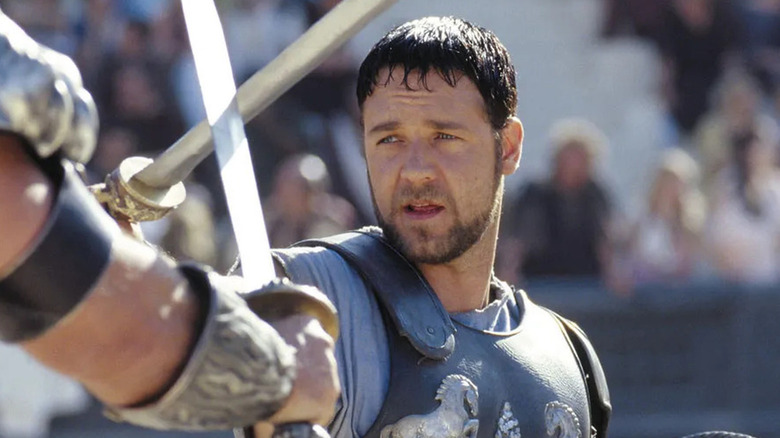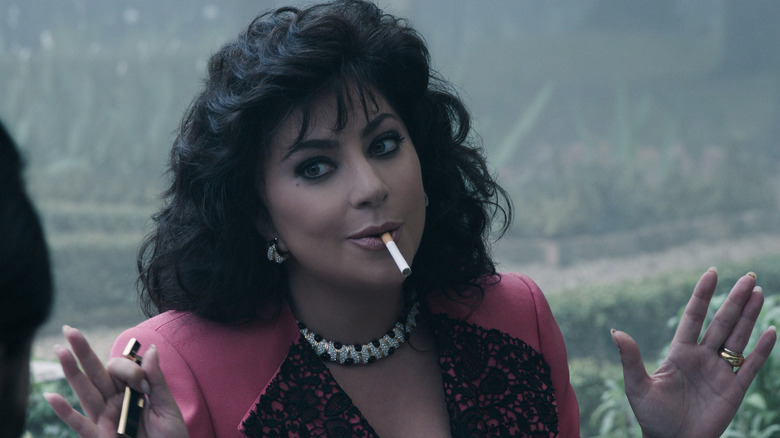Ridley Scott's Biggest Directing Decision Happens Long Before Filming
An old theater adage claims directing is 90% casting. Basically, if you hire the right actor for each principal role, you've spared yourself a load of tsuris once the production is up and on its feet. There will be unforeseen obstacles, if not outright debacles, but at least you know the folks charged with bringing the work to life need little in the way of adjustments and coddling. Okay, they may need loads of coddling, but at least you're prepared for it.
This goes double and then some for filmmaking. Auteur theory be damned — producing a movie is a collaborative, piecemeal process that requires professionals from wildly different disciplines to be on the same page. It takes a good deal of time to get all the machinery in the right place, which means, when it's finally time to shoot the scene, it's crucial that the actors have done all their preparation in advance. Knowing your lines and hitting your marks are vital to keeping the production on schedule and on budget.
For a prolific filmmaker like Ridley Scott, who makes big movies with lots of moving parts on the technical side of things, good casting is absolutely essential.
Actors as creative partners, not adversaries
As Ridley Scott explained to Total Film, "If I cast really well, then half the pressure's off me on the day. I can then concentrate on the overall scheme of things." Unlike Alfred Hitchcock, who famously told Francois Truffaut that "actors are cattle," Scott believes performers are "sophisticated at this level." By which he means they work so frequently, they're able to adapt to their new director's approach, be it convivial or adversarial, without missing a beat. "[W]hat I've tried to do is make, as soon as possible, a partnership. It's not director/actor," he continued.
You might think a director with Scott's corporate background would be dismissive of actors, but he's actually solicitous of their input and fiercely protective of them once the shoot begins. He went on:
"When meeting them beforehand, which normally I do, I'm really trying to create a friendship, because once you're into that situation of working in front of a big unit, and I'm asking a person to literally reveal themselves to this group of people, they have got to feel safe. From my point of view, I try to make the arena that they're about to enter safe, so they feel very well looked after. And then I find they open up and blossom."
And why wouldn't they open up? Scott's films are perennial awards contenders. He may be known primarily as a visual stylist, but he's proven time and again he knows how to showcase his performers. When it comes to security between actors and directors, there's not a safer place than a trailer on a Ridley Scott set.

